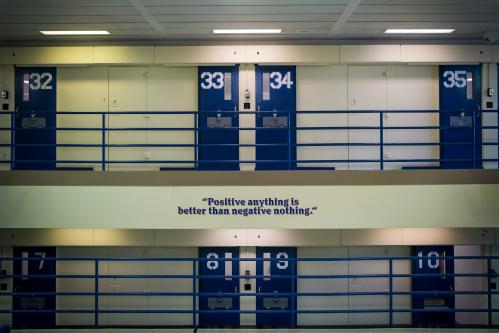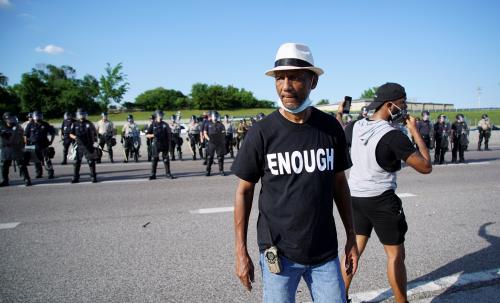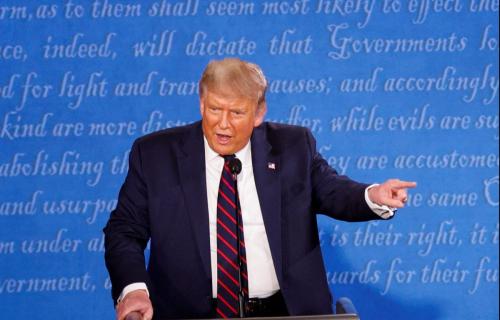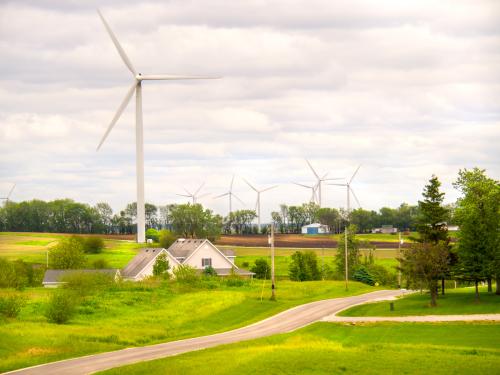“I have done more for Black Americans than anybody, except for the possible exception of Abraham Lincoln.” Donald Trump has repeatedly made this statement. However, many Black Americans have not viewed Trump’s first presidential term similarly. We cover some of the key concerns below.
The Economy
It is true that Black unemployment was at an all-time low in February 2020, before COVID-19. Yet, the Black unemployment rate under the Obama-Biden administration had one of the largest declines in American history following The Great Recession. Trump largely inherited a growing economy. However, when we look at the jobs picture, in addition to the unemployment rate, we are concerned about the quality of those jobs. Quality jobs pay living wages and benefits. Blacks still continue to be concentrated in lower sector jobs, which do not have adequate healthcare or paid sick leave and have disproportionately exposed them to COVID-19. For Black men, job prospects are even more limited. In addition to facing more barriers to work entry, the available jobs often do not provide enough money for them to provide financially for their families. For these men, the labor market has failed them. Thus, their unemployment is not factored into the rate. In fact, research notes that 1.5 million Black men are missing from social and economic life.
Trump’s recent Platinum Plan claims to increase investments in Black communities by creating Black-small businesses and jobs. Despite the rapper Ice Cube’s contributions, for some it is too little, too late. The Pay Protection Plan (PPP) from the Small Business Administration left Black businesses out in the cold. Over 90% of Black-owned small businesses that applied for PPP funding were denied. This has led to over 40% of Black-owned small businesses being shuttered during COVID-19. These realities document a callousness towards Black business owners who already have difficulties securing loans for development, and if provided a loan, are more likely to be offered one at higher interest rates than similar white-owned businesses would obtain, thereby increasing their operating costs. If achieving racial equity were actually part of Trump’s agenda, the distribution of resources from the PPP would have explicitly included Black-and-other-minority-owned small businesses and would have allowed them to receive an equitable share.
Implicit Bias Training
During the first 2020 Presidential debate, Chris Wallace asked Trump, “Why did you end racial sensitivity training and do you believe there is systemic racism in this country?” Trump replied, “I ended it because it’s racist… a lot of people were complaining they were asked to do things that were absolutely insane. That it was a radical revolution… They were teaching people to hate our country.” Trump’s statements are ironic considering that hate crimes increased over 200% in places where he held a campaign rally in 2016. His language about “Liberate Michigan” and “Stand back and stand by” may have contributed to the kidnapping plots of Michigan and Virginia Governors.
In addition to Trump’s inflammatory rhetoric, the recent ban on trainings using critical race theory and addressing white privilege are an admission that improving workplace culture is not part of a Trump administration. It is also a blatant denial of racial discrimination that has been protected under the law. All of the federal government needs these forms of training, starting with the White House.
Criminal Justice Reform and Policing
For many Black people, Trump’s law and order rhetoric and dismissal of the Movement for Black Lives unearths collective memories about his full-page advertisements in four New York newspapers including The New York Times, to crucify the now exonerated Central Park 5. In big, bold letters, Trump’s headline read: “Bring Back the Death Penalty. Bring Back our Police!”
While it is true that Trump signed the First Step Act, a bipartisan bill originally introduced by Senator Cory Booker as the Next Step Act that seeks to decrease recidivism and prison population numbers by providing more vocational training and work opportunities for the formally incarcerated, the Administration’s Department of Justice has also taken steps which have undermined efforts to decrease racist and hostile encounters between Black and Brown Americans and law enforcement. The Trump administration has purposely halted consent decrees and Department of Justice police department investigations. As a point of reference, the Obama administration handed down the most consent decrees of any president.
Judges and the Courts
Blacks Americans should be aware of what may be Trump’s lasting legacy—his federal judge selections and his Supreme Court nominations. The demographics of the judges are telling. Trump has appointed the most Appeals Court judges since President Jimmy Carter. Not one of them is Black. With a strongly conservative set of judges, many of them will affect judicial outcomes for at least the next generation on topics of critical importance to Black Americans, including policing, sentencing, voting, healthcare, and racial equity. To highlight the impact of these judges, a recent panel, all appointed by Trump, blocked a lower court ruling and is allowing Texas Governor Greg Abbott to only have one mail-in ballot drop off box in each county in the state.
If Trump was doing more for Black people, he would do all he could to ensure they have equitable access to vote. Voting Rights is a cornerstone civil right that Black communities fought to secure. There are millions of Black people who recall not being able to vote. Black people’s right to vote has not been protected and many will be potentially exposed to COVID-19 because of their distrust in the mail-in ballot process.
COVID-19 and Affordable Healthcare
This brings us to COVID-19. Simply put, the pandemic response by the Trump administration has been deadly. COVID-19 has disproportionately killed Black people at double the rate of Whites. However, it could have been different. When Trump took office, he dismantled the pandemic response unit created under the Obama-Biden administration. He also shut down the social and behavioral committee that helps inform the White House on how people embedded in social institutions like education, hospitals, prisons, grocery stores and restaurants, and neighborhoods might be disproportionately affected based on their urban or rural environments. These factors are the main reason why, to date, nearly 8 million Americans have contracted COVID-19 and nearly 220,000 have died.
Trump claims there is no way these deaths could have been prevented. What we know is that the viral infections are both biologically and socially pathogenic as they follow pathways or vectors of inequity to attack the most vulnerable. Structural conditions determine the susceptibility and severity of acute and chronic conditions. In a global report on pandemic responses, the United States ranked 175th on healthcare access out of nearly 200 countries. Early on during the pandemic, Black people were six times more likely to be turned away from COVID-19 testing and treatment once at the hospital.
In 2016, Trump asked Black Americans: “What do you have to lose?” This is such an infamous statement that rapper Meek Mill put it in the opening of his recent song. Well, what Black people have to lose are their lives as well as those of their loved ones if stuck with four more years of a Trump administration.
Dr. Gilbert is currently an Associate Professor at the Saint Louis University College for Public Health and Social Justice in the Department of Behavioral Science and Health Education . He is also co-director of the Institute for Healing Justice and Equity. His primary research interests seek to reduce health disparities through research and interventions that will prevent disease and promote healthy behaviors.







Commentary
Has Trump failed Black Americans?
October 15, 2020